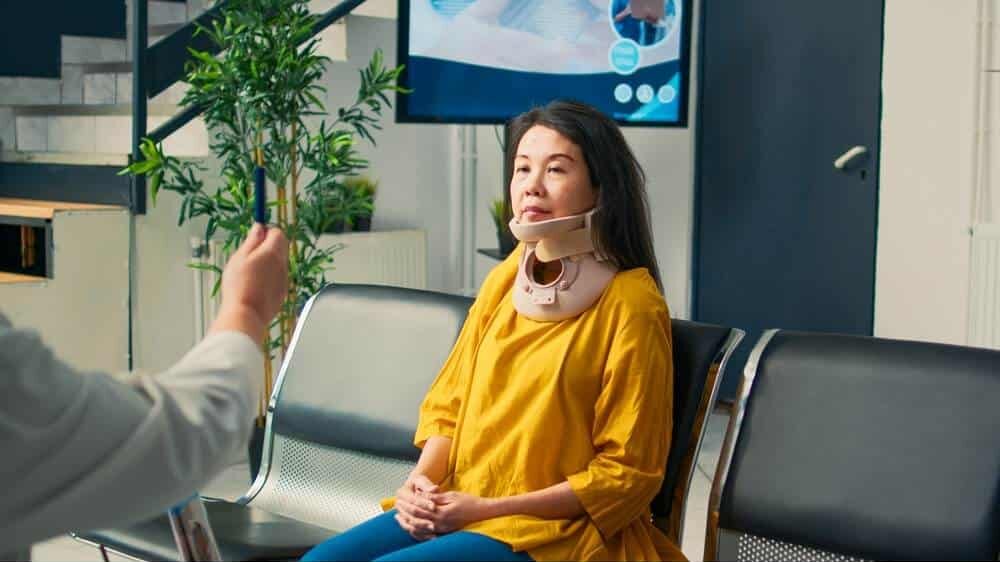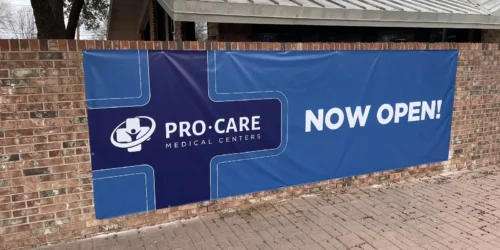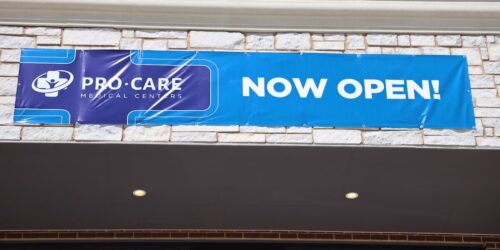What happens when you’ve been in a car accident but don’t start to notice any symptoms of an injury until hours or days afterward? With certain car accident injuries, it is very possible to experience delayed symptoms of car accident injuries like a concussion. It is very important to get started with TBI treatments as soon as possible to help prevent any lasting damage.
That’s why you want to get checked out by a car accident doctor as soon as possible, even if you don’t have any symptoms yet. When you visit a car accident doctor after a car crash, they can assess you for potential injuries that you don’t even realize are there yet. The sooner you get started on treating your injuries, the better your chances are for a full recovery. Here’s everything you need to know about delayed concussion symptoms after a car crash.
The Reason Why Concussion Symptoms May Appear Late
A concussion is a type of traumatic brain injury, or TBI, that occurs when the brain is jolted or shaken inside the skull. The force of impact from an accident can cause your body to get violently jolted around, which can result in serious injury. You could also suffer a concussion from hitting your head against part of the vehicle, like the steering wheel or window. Concussion symptoms can be delayed for several reasons.
One reason is that the brain can take time to show symptoms of a car accident injury, especially if the injury is mild. Your brain may try to compensate for the injury initially but could become overwhelmed and result in symptoms. The physical and emotional stress of getting into a car crash can also contribute to the delayed onset of concussion symptoms. As the shock and adrenaline from getting into a car accident wear off, you may start to notice common symptoms such as pain, headaches, dizziness, and other common symptoms of a concussion.
What Are Delayed Concussion Symptoms?

Some symptoms of a concussion may develop immediately after the car crash, while others may not appear for hours, days, or even weeks after the accident. Concussion symptoms can impact you physically, cognitively, and emotionally. Here are examples of common delayed concussion symptoms after a car crash:
Headaches
Headaches are a common symptom of a concussion, both immediately after an accident or in the hours or days afterward. Concussion headaches can vary depending on the person but may feel like a throbbing pain at the base of the skull or may feel more like a migraine.
Dizziness
Dizziness and disorientation can also develop after a car crash if you have a concussion. You may notice you have difficulty maintaining your balance or standing and walking steadily. Dizziness from a concussion can also make other symptoms, such as headaches, become more intense.
Vision Problems
A concussion can result in vision problems, including blurred vision, double vision, or difficulty focusing on objects. The neurotransmitters in the brain can become disrupted by a concussion injury and impact the optic nerve and how your eyes take in information.
Difficulty Concentrating
A concussion can also cause difficulty with concentration and attention. You may find it hard to follow a conversation or focus on the task at hand.
Memory Problems
Some people experience memory problems after a concussion. You may not be able to remember things that happened before or after the accident, both of which are signs of a concussion. The risk for memory problems may increase if you lost consciousness with the head injury.
Sleep Disturbances
A concussion can also result in sleep disturbances. You may have difficulty getting to sleep or staying asleep after a concussion. Some people also experience excessive sleepiness after a concussion.
Mood Changes
Mood changes can also occur after a concussion, including irritability, mood swings, anxiety, and depression.
What is Post-Concussion Syndrome After a Car Accident
Post-concussion syndrome is a condition that can occur after someone experiences a concussion or mild traumatic brain injury. This is a complex disorder that can result in a variety of physical, cognitive, and emotional symptoms that may persist for weeks, months, or even years after the initial accident. Some symptoms of post-concussion syndrome include headaches, dizziness, fatigue, memory problems, difficulty concentrating, and sensitivity to light and sound. Other symptoms may include mood changes, insomnia, and other symptoms that may significantly impact a person’s overall quality of life. Chemical changes to the brain can occur with a concussion from a car accident and result in ongoing inflammation or other reasons for developing post-concussion syndrome.
Risks of Re-Injury & Concussion Care
The risk of re-injury for concussion is significant, and repeat concussions can have a significant and long-lasting impact on a person’s health and well-being. The brain is a complex and vital organ, and each concussion injury can result in damage to brain cells that may take time to heal or may never heal fully. With each concussion, the recovery time may be prolonged and the symptoms more severe. Re-injury for a concussion can also occur more easily and with even less force than the initial injury because the brain is more vulnerable and sensitive to additional trauma. It is essential to prevent re-injury and follow all TBI treatment protocols after a concussion by allowing the brain to heal fully.
What to Do to Recover from a Concussion After a Car Accident

If you have suffered a concussion or think you may have a TBI, you should see a doctor as soon as possible. A car accident doctor can provide you with the necessary medical attention and treatment plan to help minimize the risks of re-injury and support a full recovery. Here are a few examples of how to recover from a concussion after a car accident:
See a Doctor
Medical attention is a key aspect in taking the appropriate steps to ensure a full recovery and minimize your risk for complications. You will receive a thorough evaluation, diagnosis, and treatment plan to address your specific symptoms and recommendations for recovery at home.
Take Time to Rest
You must give your brain time to heal by taking time to rest both physically and mentally. Avoid activities that require a lot of effort or exertion or that may exacerbate your symptoms. This includes exercise, playing sports, and even using electronic devices.
Monitor Symptoms
Keep track of your concussion symptoms and note any changes or worsening symptoms to share with your car accident doctor. This can help identify any potential underlying issues that may need to be addressed further.
Follow Treatment Plan
Follow your doctor’s treatment plan to ensure a safe and effective recovery. Your treatment plan may include a combination of rest, medication, physical therapy, and other techniques to help manage your symptoms.
Gradually Resume Activities
You can gradually resume activities as your concussion symptoms start to improve. You will want to resume activities under the guidance of your car accident doctor to help prevent re-injury and ensure a full recovery.
It is important to take any type of head injury seriously and seek medical attention after a car accident. With proper management and care, many people who experience a concussion after a car accident go on to fully recover and resume their normal activities. At Pro-Care, our team of car accident chiropractors is here to help you with treatment recovery from a concussion after a car crash. Schedule an appointment today to get started on a treatment and recovery plan that will help you.



